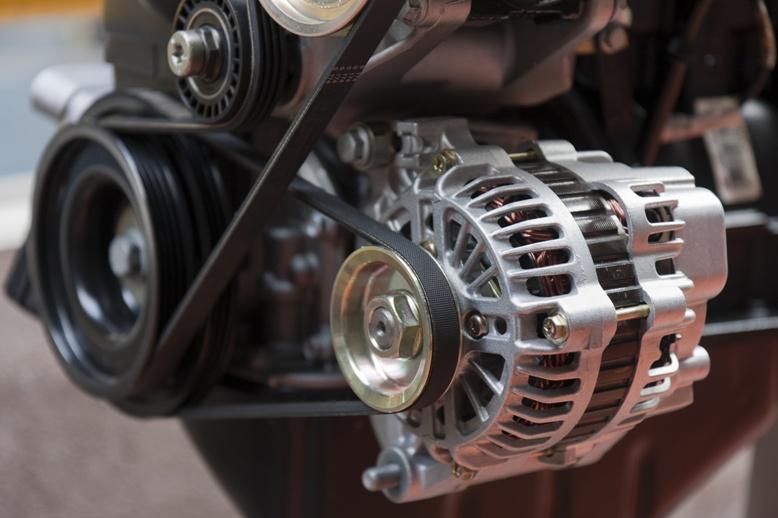An alternator can get hot up to 150–210 degrees fahrenheit. The heat is generated due to the internal electrical and mechanical processes of the alternator, such as friction and resistance.
This heat can cause damage to the alternator if it exceeds the recommended operating temperature range. To prevent overheating, it is essential to ensure proper maintenance of the alternator and its components, such as belts and connectors. Regular inspection and cleaning of the cooling fins and ventilation system can also help to dissipate heat efficiently, thereby extending the lifespan of the alternator.
In this article, we’ll explore the factors that contribute to alternator overheating and how to prevent it from happening.

Credit: www.linquip.com
The Science Behind Alternator Heating
The science behind alternator heating is primarily based on the principle of heat dissipation. Alternators are designed to work in tough conditions to produce electricity, which can result in thermal overload. One crucial aspect is understanding the thermal load on alternators.
It is determined by the amount of current passing through the system and the ambient temperature. Exploration of common alternator components prone to overheating like bearings, rectifiers, and stator windings can also help diagnose potential issues to prevent costly repairs.
Hence, it is essential to ensure that an alternator doesn’t get too hot to prevent any damages. Proper maintenance and regular check-ups can help keep the alternator cool and avoid any serious issues.
Factors Affecting Alternator Temperature
Alternators play a critical role in a vehicle’s functionality and generate electricity via a rotor and stator. The temperature of an alternator is influenced by various factors. The electrical load on an alternator is one such factor that can increase heat generation.
Higher ambient temperatures can also contribute to an increase in alternator heating. The engine speed can also play a role in the heating of an alternator. It is crucial to monitor the temperature of an alternator regularly. Keeping track of the alternator’s temperature can prevent any issues that may occur from overheating, such as damage to the alternator or other electrical components of the vehicle.
By maintaining optimal operating temperature, drivers can extend the lifespan of their alternator.
Functions of an Alternator in a vehicle.
Monitoring Alternator Temperature
Alternators are key components of vehicles that contribute to the continuous power supply to a car’s battery and electrical systems. Knowing how hot an alternator gets can help prevent serious problems like fire. Overheating of an alternator is a common issue faced by many car owners.
To understand the signs of overheating, be aware of strange noises or smells. Techniques for monitoring alternator temperature include using infrared thermometers, thermal imaging cameras, and thermal labels. Identifying safe alternator temperature levels is essential to preventing overheating issues that can cause significant damage to vehicles.
Always keep an eye on alternator temperature to prevent potential issues.
Preventative Measures For Alternator Overheating
An alternator is a vital component of any vehicle, as it helps in charging the battery and powering the electrical systems. However, overheating can cause significant damage to the alternator, leading to more significant issues. Implementing proper electrical load management can reduce the workload on the alternator, preventing overheating.
Effective cooling system maintenance can also help keep the alternator and other engine components cool. Choosing an appropriate alternator design and construction is essential to ensure proper functioning and avoid overheating. Regular inspection and maintenance can also help detect early signs of overheating and prevent any severe damage.
By taking these preventive measures, you can ensure the long life of your vehicle’s alternator and avoid any unexpected breakdowns on the road.
Steps To Take When An Alternator Overheats
An alternator is an essential component of a car’s electrical system that works to keep the battery charged. Overheating, however, is a common issue that arises with alternators. The first step to take when your alternator overheats is to safely stop the engine.
This would prevent any further damage or danger to the car. The next step would involve identifying the root cause of the overheating. This could be due to loose connections or damaged belts. Finally, potential alternator repair techniques must be considered.
These could include repairing or replacing the alternator. It’s crucial to take these measures since an overheating alternator is not only dangerous but also leads to unnecessary expenses.
Importance Of Regular Maintenance
Maintaining your vehicle’s alternator can prevent overheating and enhance performance. Routine maintenance techniques such as regular inspections, cleaning, and tightening connections are crucial in preventing overheating. Neglecting regular maintenance may cause long-term damage to your alternator, leading to costly repairs or replacements.
Regular maintenance brings the benefits of prolonging the lifespan of your alternator and ensuring its reliability. By keeping tabs on your alternator and addressing issues promptly, you can avoid any inconveniences and keep your vehicle running smoothly.
Stay ahead of the game by following the maintenance schedule in your owner’s manual, and bringing your vehicle to a trusted mechanic for regular checkups.
Conclusion
Understanding the working temperature of your alternator is vital to ensuring its longevity. As we have seen, alternators can get hot due to various reasons, including an overload of electrical equipment or issues with the cooling system. Regular maintenance of your alternator, such as cleaning its components and checking the condition of belts and connections, can help prevent overheating issues.
It is also essential to ensure that your vehicle’s electrical system is functioning correctly. Additionally, taking preventive measures such as allowing the alternator to cool down after long drives can also help prevent overheating. By prioritizing the health of your alternator, you can avoid costly breakdowns and keep your vehicle running smoothly.
Remember to consult a professional mechanic when dealing with any alternator problems and adhere to safety precautions when handling its hot components.
